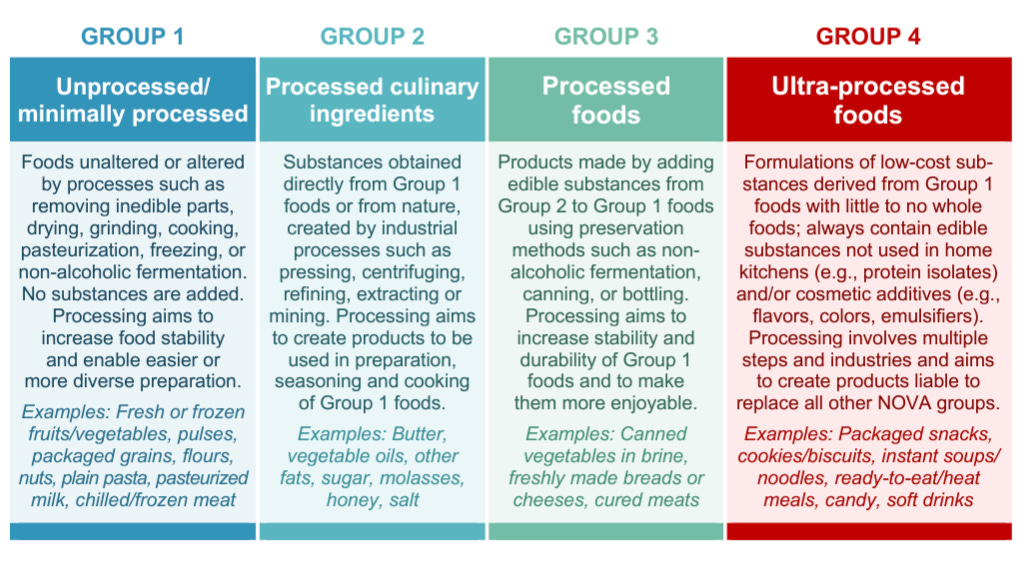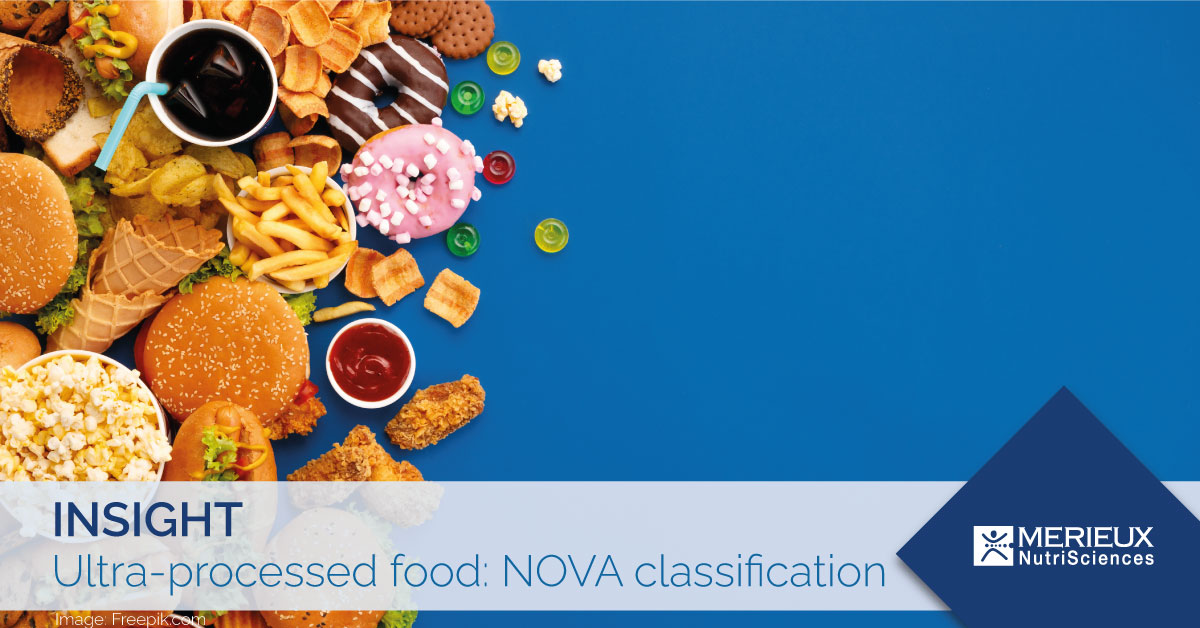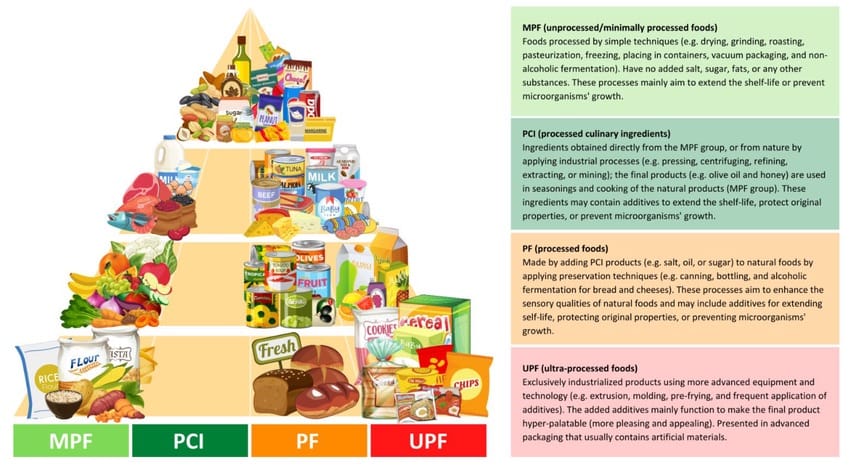NOVA is a name, not an acronym! it is used to classify foods in one of four groups according to how processed they are.

GROUP 1: unprocessed/minimally processed ingredients
this should be the majority of your diet. these ingredients are obtained in their whole, natural form! examples include fresh fruits & veg, nuts, seeds, meat and fish, beans and legumes, eggs.
GROUP 2: processed ingredients commonly found in home kitchens
generally these are shelf stable ingredients like herbs, spices, oils, butter, maple syrup, salt.
GROUP 3: processed, but still able to be made in your own kitchen
generally something from group 1 + group 2. examples include jams and jellies, cheese, yogurt, wine and beer, other fermented foods, canned foods
GROUP 4: ULTRA processed foods (UPFs)
AVOID THESE ONES as much as possible! these are foods you could not make in your own kitchen. the matrix of the food has been destroyed or altered in a way that changes the information given to your body when consumed. these calories/nutrients are NOT created equal to the foods in the other 3 groups!
examples of UPFs are essentially anything that comes in a bag or a box where the food matrix has been changed. most of these foods are also dehydrated for cost effectiveness and have salt, sugar, and fat added in strategic quantities to make the foods more palatable.
group 4 foods: packaged snacks and desserts like chips/pretzels/candy, soda, hot dogs, frozen entrees like pizza and others
why does food coloring matter?
California, one of the most proactive states in enacting legislation to protect patients from harmful exposures (food, environment, structural) - banned red dye as early as 1990 from cosmetics and skin products.
Red dye No 3 specifically has led to cancer in animal studies (rats) and is now linked to behavioral problems in children.
what are emulsifiers?
ingredients added to foods to make things mix more easily into compounds. if you make your own homemade dressing, you've done this before: adding honey to vinegar and oil makes them mix!
the FDA has approved over 170 emulsifiers (as compared to the ~70 endorsed in the UK, and ~60 endorsed in the EU).
you can check the status of food additive approvals on the FDA website here.
but all of this feels very overwhelming. where do i start?
there is a lot of information out there. let's reframe from the perspective of YOU, because it's unhelpful to be given rules - you are your own best guide.
your body is a perpetual construction zone; each second of each day, every cell in your body is working hard to produce the energy that helps you think and move, the proteins and peptides that comprise your immune defenses, and so much more.
everything that enters your body matters:
- micronutrients (calcium, zinc, magnesium, enzymes, phytonutrients, vitamins)
- macronutrients (protein/carbs/fat)
- the content entering your eyeballs (how much time are you spending on the social medias and watching TV? when was the last time you creatively imagined, like you did when you were small?)
- the things you put on your skin
- the noise levels entering your ears: per Gabor Mate in The Myth of Normal, an animal study showed that just one hour of harsh sound exposure in utero per week yielded offspring more likely to utilize addictive substances for coping in adult life than their non-loud sound exposed counterparts. (what kinds of noises are you exposed to in your home, your workplace? do you yell at your partner or spouse? what about your children?)
regarding food, I like the simple advice below.
i invite you to write your own manifesto. what are your not-rules for nourishment, for living, for thriving?
why does this matter?
ultra processed foods (UPFs) make up roughly 58% of the average daily American diet. these foods are increasingly associated with cardio metabolic disease - creating heart attack, stroke, diabetes, limb amputation or vascular surgery, and a host of other PREVENTABLE conditions later on in life. awareness of how often & how much YOU are eating of these foods is CRITICAL to your health and wellness.
a poor diet is the number one risk factor for preventable disease like high blood pressure, heart disease, high cholesterol, obesity, prediabetes, and type 2 diabetes.



